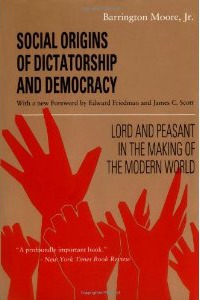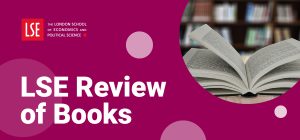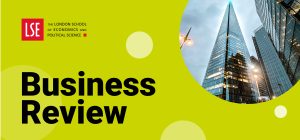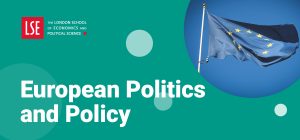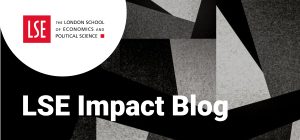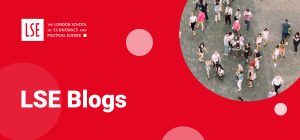Which books and authors first inspired you to become an academic?
That’s the question we’re asking social scientists across the world in our regular Academic Inspiration feature. Aiming to showcase the more personal side of academia not often shared, each contribution is a revealing look at the books which first inspired some of today’s most prominent social science academics. Want to contribute? Here’s all you need to know.
As well as browsing the short essays below, you can also search by discipline. Most contributions are under 1000 words, and some contributions also include podcasts or audio segments.
/ Geographers / Linguists / Law scholars / Anthropologists / Gender theorists / Sociologists / Political scientists / Historians / Economists / Management scientists / Literature theorists / Urbanists / Philosophers / Media scholars /
……………………………………………………………………………………………………………………………
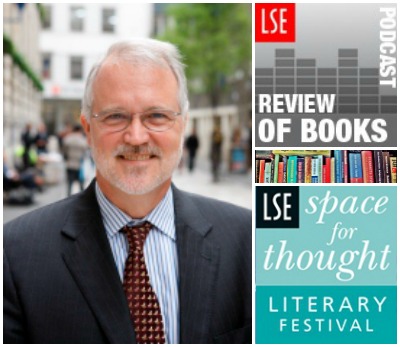 LSE Literary Festival 2014: The books that inspired Craig Calhoun
LSE Literary Festival 2014: The books that inspired Craig Calhoun
From 24th of February to 1st March 2014 the London School of Economics will hold its 6th Annual Literary Festival, under the theme ‘Reflections’. To celebrate and support the festival, we’re launching a series of special Academic Inspiration segments featuring prominent LSE academics and event speakers.
In this podcast, the Director of the LSE and world-renowned sociologist, Professor Craig Calhoun, tells us about the classical social theorists who inspired him early in his career, and why the most inspiring books are the ones with which you find a multitude of limits and problems.
[jwplayer mediaid=”19395″]
Browse the full LSE Space for Thought Literary Festival programme here.
…………………………………………………………………………………………….
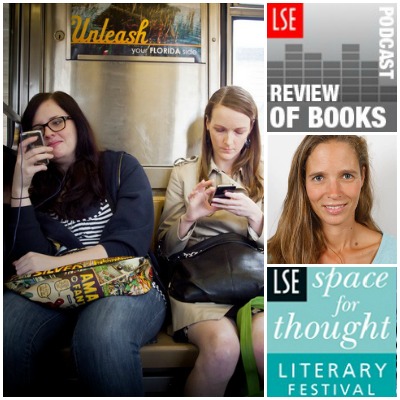 LSE Literary Festival 2014: The books that inspired Ellen Helsper
LSE Literary Festival 2014: The books that inspired Ellen Helsper
From 24th of February to 1st March 2014 the London School of Economics will hold its 6th Annual Literary Festival, under the theme ‘Reflections’. To celebrate and support the festival, we’re launching a series of special Academic Inspiration segments featuring prominent LSE academics and event speakers.
In this podcast, Dr Ellen Helsper, Lecturer in the Media and Communications Department at the LSE, talks us through the books that have inspired her interest in media technologies and privacy. Ellen will contribute to the Literary Festival event titled “Private Lives: Do we still value our privacy?” on 1st March.
[jwplayer mediaid=”19621″]
Browse the full LSE Space for Thought Literary Festival programme here.
…………………………………………………………………………………………….
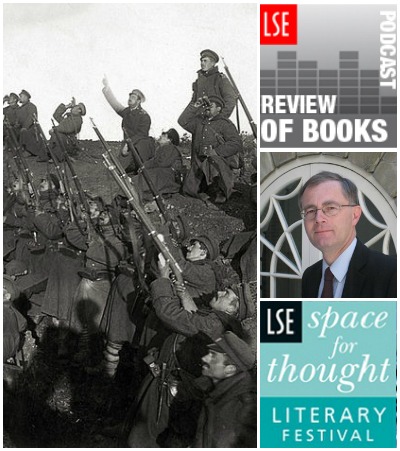 LSE Literary Festival 2014: The books that inspired David Stevenson
LSE Literary Festival 2014: The books that inspired David Stevenson
From 24th of February to 1st March 2014 the London School of Economics will hold its 6th Annual Literary Festival, under the theme ‘Reflections’. To celebrate and support the festival, we’re launching a series of special Academic Inspiration segments featuring prominent LSE academics and event speakers.
In this podcast, David Stevenson, Professor of International History at the LSE, tell us about the books on World War I that have had the most impact on his academic career. Professor Stevenson will chair at this year’s Literary Festival titled “Why Remember? Reflections on the First World War Centenary” on 26th February.
[jwplayer mediaid=”19539″]
Browse the full LSE Space for Thought Literary Festival programme here.
…………………………………………………………………………………………….
 The books that inspired Michael McQuarrie: “Mike Davis’ work connected with my own experience of urban transformation in New York”
The books that inspired Michael McQuarrie: “Mike Davis’ work connected with my own experience of urban transformation in New York”
……………………………………………………………………………………………………………………………
 The books that inspired Alessandra Radicati: “I owe my interest in inequality to The Great Gatsby by F. Scott Fitzgerald”
The books that inspired Alessandra Radicati: “I owe my interest in inequality to The Great Gatsby by F. Scott Fitzgerald”
……………………………………………………………………………………………………………………………
 The books that inspired Maja Milatovic: “The works of Toni Morrison and Audre Lorde have motivated my engagement with African American women’s literature”
The books that inspired Maja Milatovic: “The works of Toni Morrison and Audre Lorde have motivated my engagement with African American women’s literature”
……………………………………………………………………………………………………………………………
 The books that inspired Vanessa K. Valdés: “Piri Thomas’s memoir changed my life forever and showed me the New York of my father’s time, his Spanish Harlem”
The books that inspired Vanessa K. Valdés: “Piri Thomas’s memoir changed my life forever and showed me the New York of my father’s time, his Spanish Harlem”
……………………………………………………………………………………………………………………………
 The books that inspired Jeff Roquen: “I soon become a disciple of the social ideas of Gandhi after finding an anthology of his work in an independent bookstore”
The books that inspired Jeff Roquen: “I soon become a disciple of the social ideas of Gandhi after finding an anthology of his work in an independent bookstore”
……………………………………………………………………………………………………………………………
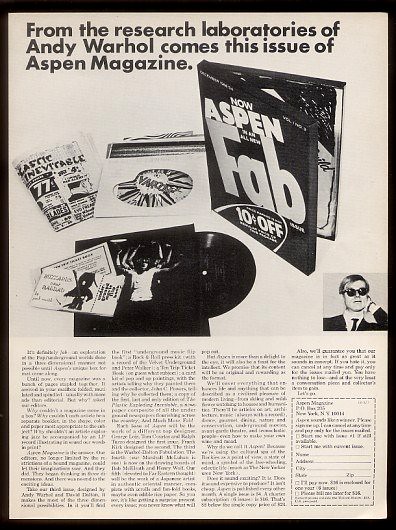 The books that inspired Kip Jones: “The 1960s magazine ASPEN continues to shape my use of arts-based tools in disseminating social science”
The books that inspired Kip Jones: “The 1960s magazine ASPEN continues to shape my use of arts-based tools in disseminating social science”
……………………………………………………………………………………………………………………………
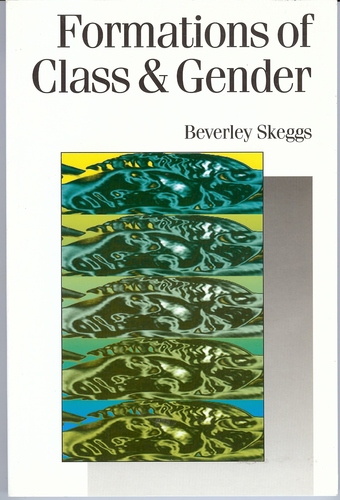 The books that inspired Carli Ria Rowell: “Bev Skeggs’ work motivates me during times of isolation that come with a PhD”
The books that inspired Carli Ria Rowell: “Bev Skeggs’ work motivates me during times of isolation that come with a PhD”
……………………………………………………………………………………………………………………………
 The books that inspired Simon Glendinning: “I did not put the book down again for the next five years. In fact, I could not say I have put it down even now, nearly thirty years later.”
The books that inspired Simon Glendinning: “I did not put the book down again for the next five years. In fact, I could not say I have put it down even now, nearly thirty years later.”
……………………………………………………………………………………………………………………………
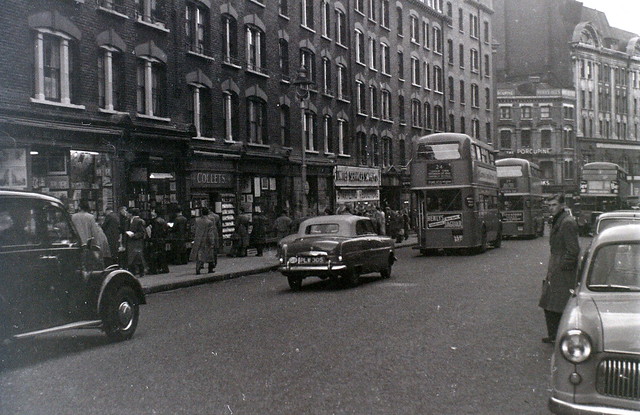 The books that inspired Mike Savage: “The highlight of my visits to London was a trip to Collets bookshop on Charing Cross Road”
The books that inspired Mike Savage: “The highlight of my visits to London was a trip to Collets bookshop on Charing Cross Road”
……………………………………………………………………………………………………………………………
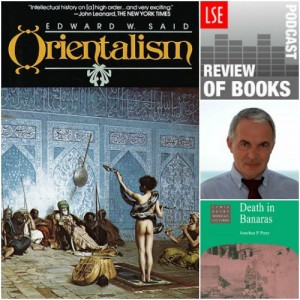
Special Edition Academic Inspiration: The books that inspired Stuart Corbridge
Stuart Corbridge, Professor of International Development and Deputy Director at the LSE, focuses on the books that have inspired him throughout his academic career: From the Marxist theory that shaped his undergraduate study, to the many books on India and development studies that have inspired his passion for these areas, and finally through to a very special history of The Beatles.
[jwplayer file=”http://media.rawvoice.com/lse_lsereviewofbooksblog/richmedia.lse.ac.uk/lsereviewofbooksblog/20130930_LSERB_InspirationSeries_StuartCorbridge.mp3″]
 Listen + Subscribe via iTunes
Listen + Subscribe via iTunes  Download MP3
Download MP3  Webfeed
Webfeed
Presented by Amy Mollett. Produced by Cheryl Brumley. Contributor: Stuart Corbridge. Music courtesy of Podington Bear (Falcon Hood) from the Freemusicarchive.org. Published October 2013.
……………………………………………………………………………………………………………………………
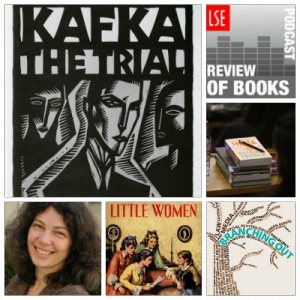 Academic Inspiration: Favourite Works of Fiction Podcast I
Academic Inspiration: Favourite Works of Fiction Podcast I
In this first edition of the Favourite Works of Fiction Podcast series, we hear from Conor Gearty, Professor of Human Rights Law, reading from Kafka’s The Trial; Mary Evans, Centennial Professor at the Gender Institute, reading from Louisa Alcott’s Little Women; and Sonia Livingstone, Professor of Social Psychology at the Department of Media and Communications, reading from Anthony Trollope’s The Warden.
[jwplayer mediaid=”12584″]
Presented by Amy Mollett. Produced by Cheryl Brumley. Contributors: Conor Gearty, Mary Evans, Sonia Livingstone. Music and sound came courtesy of the following contributors at the FreeMusicArchive.org: Silent Strangers (In the Elysian Field – CC-BY-NC-ND); Lee Maddeford with Les Gauchers Orchestra (Le petit jardin – CC-BY-NC-SA); and Clinic Archives Mix (Melting Clouds – Defoliation – CC-BY-NC-ND).
……………………………………………………………………………………………………………………………
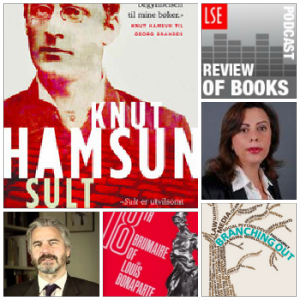 Academic Inspiration: Favourite Works of Fiction Podcast II
Academic Inspiration: Favourite Works of Fiction Podcast II
In this second edition of the Favourite Works of Fiction Podcast series, we hear from Professor Odd Arne Westad, Director of LSE IDEAS, reading from Knut Hamsun’s Sult; Professor John Van Reenen, Director of the Centre for Economic Performance, reading from the non-fiction essay The Eighteenth Brumaire of Louis Bonaparte by Karl Marx; Dr Fatima El Issawi, Research Fellow at POLIS, reading from The Messenger With Her Hair Long to the Springs by Lebanese poet Ounsi el-Hajj; and Dr Simon Glendinning, Reader in European Philosophy and Director of the Forum for European Philosophy, reading from Franz Kafka’s short story Before the Law.
[jwplayer mediaid=”12585″]
Presented by Amy Mollett. Produced by Cheryl Brumley. Contributors: Odd Arne Westad, John Van Reenen, Fatima El Issawi, Simon Glendinning, Dominic Muir, Cheryl Brumley. Music and sound came courtesy of the following contributors at the FreeMusicArchive.org: Phopha (Macabre City – CC-BY-NC-ND); Machines in Heaven (bordersbreakdown – CC-BY-NC-SA); Dexter Britain (After The Week I’ve Had (CC-BY-NC-SA); and Alfred Bizarro To Be Exactly (Pineambient – CC-BY-NC-ND).
……………………………………………………………………………………………………………………………
 The books that inspired Scott Timcke: “Achille Mbembe’s On the Postcolony struck me as a remarkable application of late twentieth century cultural theory to African Studies. Even though my intellectual trajectory has since then moved towards liberal political theory and ethics in general, these books remain central touch-points of my academic identity.”
The books that inspired Scott Timcke: “Achille Mbembe’s On the Postcolony struck me as a remarkable application of late twentieth century cultural theory to African Studies. Even though my intellectual trajectory has since then moved towards liberal political theory and ethics in general, these books remain central touch-points of my academic identity.”
………………………………………………………………………………………………………………………………
The books that inspired Sevasti-Melissa Nolas: “An Erasmus exchange in France exposed me to William Labov’s classic sociolinguistic studies on Martha’s Vineyard, The Social Stratification of English in New York City, and Language in the Inner City, leading me to think about the relationship between language and class.”
………………………………………………………………………………………………………………………………
 The books that inspired Babette Babich: “The most influential book I read, the book that made me who I am as a scholar, was Kant’s Critique of Pure Reason. I found this book in the library and read it at Stony Brook in the basement of the Chemistry building, overnight and well into the next day, all without sleeping, fuelled by instant coffee, which, having no access to a kettle or a cup (I was more impoverished than most impoverished students), I ate by the spoonful.”
The books that inspired Babette Babich: “The most influential book I read, the book that made me who I am as a scholar, was Kant’s Critique of Pure Reason. I found this book in the library and read it at Stony Brook in the basement of the Chemistry building, overnight and well into the next day, all without sleeping, fuelled by instant coffee, which, having no access to a kettle or a cup (I was more impoverished than most impoverished students), I ate by the spoonful.”
………………………………………………………………………………………………………………………………
 The books that inspired M. V. Lee Badgett: “Berkeley was also a book-lovers haven, with Telegraph Avenue lined with bookstores that beckoned seductively to busy students. There I discovered a life-changing book: John D’Emilio’s Sexual Politics, Sexual Communities: The Making of a Homosexual Minority in the United States, 1940-1970.”
The books that inspired M. V. Lee Badgett: “Berkeley was also a book-lovers haven, with Telegraph Avenue lined with bookstores that beckoned seductively to busy students. There I discovered a life-changing book: John D’Emilio’s Sexual Politics, Sexual Communities: The Making of a Homosexual Minority in the United States, 1940-1970.”
………………………………………………………………………………………………………………………………
 The books that inspired John Van Reenen: “All us geeks loved Peter Parker – bullied at school, no girlfriend, etc. I was fortunate enough to read the first issues of Spider Man courtesy of the “Mighty World of Marvel”, cheap British reprints of the American originals. I would recommend reading the first 20 or so issues of the “Amazing Spider Man” by founder of Marvel comics Stan Lee and crazed artist Steve Ditko.”
The books that inspired John Van Reenen: “All us geeks loved Peter Parker – bullied at school, no girlfriend, etc. I was fortunate enough to read the first issues of Spider Man courtesy of the “Mighty World of Marvel”, cheap British reprints of the American originals. I would recommend reading the first 20 or so issues of the “Amazing Spider Man” by founder of Marvel comics Stan Lee and crazed artist Steve Ditko.”
………………………………………………………………………………………………………………………………

………………………………………………………………………………………………………………………………
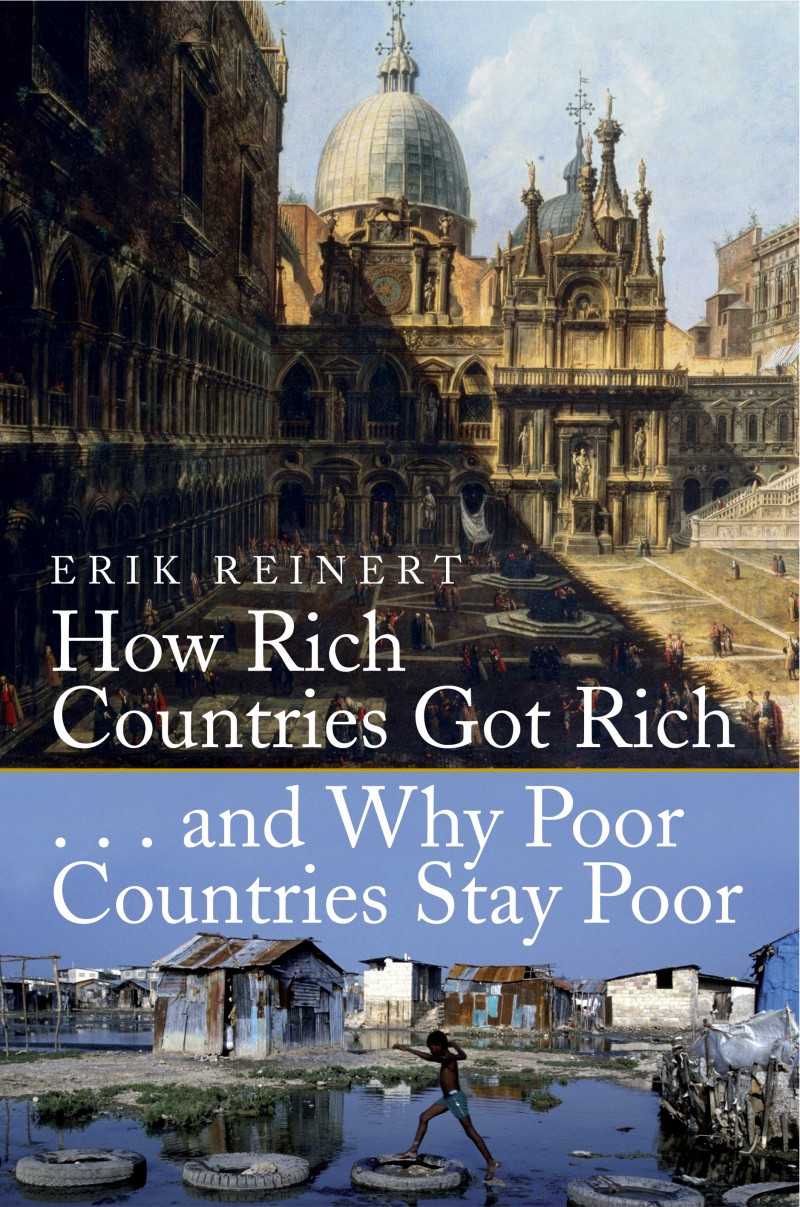 The books that inspired Ting Xu: “Law is not just located in the textbooks, cases, or statutes. Law is alive, and it is often changing”
The books that inspired Ting Xu: “Law is not just located in the textbooks, cases, or statutes. Law is alive, and it is often changing”
………………………………………………………………………………………………………………………………
 The books that inspired Robin Mansell: “I read Thomas Kuhn’s ‘Structure of Scientific Revolutions’ as a call to arms for a sociological account of science and innovation”
The books that inspired Robin Mansell: “I read Thomas Kuhn’s ‘Structure of Scientific Revolutions’ as a call to arms for a sociological account of science and innovation”
………………………………………………………………………………………………………………………………
The books that inspired Rainbow Murray: “I still cite Femmes/Hommes pour la parité by Janine Mossuz-Lavau in much of my writing”
………………………………………………………………………………………………………………………………
The books that inspired Daphne Halikiopoulou: “Barrington Moore’s work essentially identifies patterns, which for me is what comparative politics is about”
………………………………………………………………………………………………………………………………
 The books that inspired Elisabeth Schellekens: “Kant’s Critique of the Power of Judgement is one of the most interesting and tantalising texts I know”
The books that inspired Elisabeth Schellekens: “Kant’s Critique of the Power of Judgement is one of the most interesting and tantalising texts I know”
………………………………………………………………………………………………………………………………
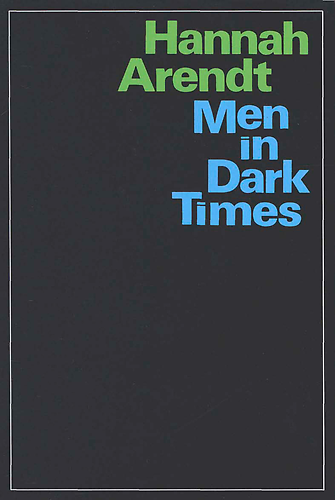 The books that inspired Cynthia Enloe: “I’ve kept my folder of Hannah Arendt’s original yellowing magazine articles to remind me that profound works of political thought can (and should) appear on the local news stand”
The books that inspired Cynthia Enloe: “I’ve kept my folder of Hannah Arendt’s original yellowing magazine articles to remind me that profound works of political thought can (and should) appear on the local news stand”
………………………………………………………………………………………………………………………………
 The books that inspired David Adams: “Looking back on urban studies publications that are 40 years old, it is fascinating to reflect on how up to date the themes are.”
The books that inspired David Adams: “Looking back on urban studies publications that are 40 years old, it is fascinating to reflect on how up to date the themes are.”
………………………………………………………………………………………………………………………………
 The books that inspired Sue Currell: “Alice Walker’s The Color Purple was the book that led me back into academia after I had dropped out of an English degree.”
The books that inspired Sue Currell: “Alice Walker’s The Color Purple was the book that led me back into academia after I had dropped out of an English degree.”
………………………………………………………………………………………………………………………………



